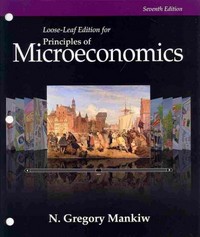This is a graded discussion: 5 points possible due Nov 28 Behavioral Economics 46 46 Instructions Think about the field of behavioral economics, which studies seemingly irrational decision making by people the economy (while most of our current economic models assume completely rational decision making). Then post a discussion thread and two replies to a colleague. To get you started, In his May 8, 2015 New York Times Article, Unless You Are Spock, Irrelevant Things Matter in Economic Behavior, Richard Thaler (University of Chicago economist who won the 2017 Nobel Prize In Economics for his work in behavioral economics) gave an Interesting example of Irrational behavior at work In his classroom: "Early in my teaching career I managed to get most of the students in my class mad at me. A midterm exam caused the problem. I wanted the exam to sort out the stars, the average Joes and the duds, so it had to be hard and have a wide dispersion of scores. I succeeded in writing such an exam, but when the students got their results they were in an uproar. Their principal complaint was that the average score was only 72 points out of 100. What was odd about this reaction was that I had already explained that the average numerical score on the exam had absolutely no effect on the distribution of letter grades. We employed a curve In which the average grade was a B+, and only a tiny number of students received grades below a C. I told the class this, but it had no effect on the students' mood. They still hated my exam, and they were none too happy with me either. As a young professor worried about keeping my job, I wasn't sure what to do. Finally, an idea occurred to me. On the next exam, I raised the points available for a perfect score to 137. This exam turned out to be harder than the first. Students got only 70 percent of the answers right but the average numerical score was 96 points. The students were delighted! I chose 137 as a maximum score for two reasons. First, it produced an average well into the 90s, and some students scored above 100, generating a reaction approaching ecstasy. Second, because dividing by 137 is not easy to do in your head, I figured that most students wouldn't convert their scores into percentages. Striving for full disclosure, in subsequent years I included this statement in my course syllabus: "Exams will have a total of 137 points rather than the usual 100. This scoring system has no effect on the grade you get in the course, but it seems to make you happier." And, indeed, after I made that change. I never got a complaint that my exams were too hard. In the eyes of an economist, my students were "misbehaving." By that I mean that their behavior was inconsistent with the idealized model at the heart of much of economics. Rationally, no one should be happier about a score of 96 out of 137 (70 percent) than 72 out of 100, but my students were. And by realizing this, I was able to set the kind of exam I wanted but still keep the students from grumbling. This illustrates an important problem with traditional economic theory. Economists discount any factors that would not influence the thinking of a rational person. These things are supposedly irrelevant. But unfortunately for the theory, many supposedly irrelevant factors do matter. Economists create this problem with their insistence on studying mythical creatures often known as Homo economicus. I prefer to call them "Econs"- highly intelligent beings that are capable of making the most complex of calculations but are totally lacking in emotions. Think of Mr. Spock in "Star Trek." In a world of Econs, many things would in fact be Irrelevant." Initial Post By Tuesday at 11:59 pm, post to this discussion (by clicking "Reply" below). Your post should: Include a discussion of how Professor Thaler's students acted irrationally. Why wouldn't their reactions be considered rational by economists? Address the question, have you ever behaved in a way that economists would consider "irrational?" Give an example, carefully explaining why it qualifies as irrational behavior (remember the difference between rational and irrational decisions!). Replies By Friday at 11:59 pm, reply to at least two of your colleagues. In your reply: Respond to your colleagues' example of irrational behavior. Have you ever behaved similarly? What insight does their example give us into the efficacy of economic models that only account for rational decision making? Do you think we need to update our economic models in any way? Initial post due by Tuesday November 28th at 11:59 pm | 2 replies by Friday Dec 1st at 11:59 pm Discussions can only have one due date in Canvas. This shows as the Tuesday deadline, but you do have until Friday to post your replies







